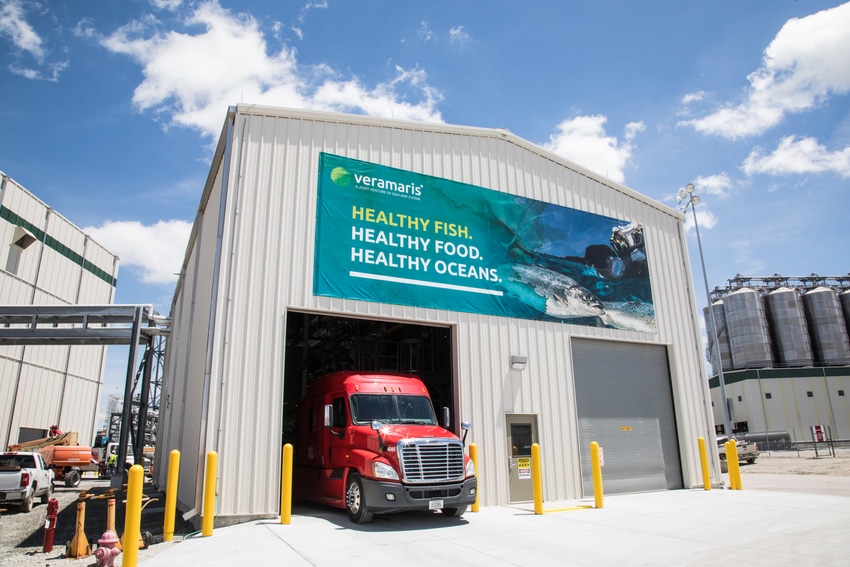Veramaris opens $200 million facility for omega-3 algal oil to support sustainable growth in aquaculture.
July 10, 2019

Following a construction period of two years, Veramaris, a 50/50 joint venture between Evonik and DSM, has commissioned its globally unique production plant in Blair, Neb.
Veramaris announced July 10 that it has started commercial-scale deliveries of its algal oil, meaning that fish oil is no longer a limiting factor for further growth in aquaculture.
According to the announcement, the Veramaris oil is a scalable and reliable alternative source of eicosapentaenoic acid (EPA) and docosahexaenoic acid (DHA), the two marine omega-3 fatty acids shown to be essential for good health for both fish and people.
“In Veramaris, we have combined the competencies of two strong partners to make an innovative contribution to the healthy nutrition of the world’s growing population, without putting any further burden on our oceans,” said Christian Kullmann, chairman of the Evonik executive board.
The zero-waste facility in Blair was completed in May ahead of schedule, on budget and with zero accidents, the company said, adding that the next step is to ramp up for full production.
Veramaris runs its innovative, $200 million facility with proprietary technology. The intellectual property behind the production technology, the algae strain Schizochytrium ssp. and the downstream processes are all strongly protected by patents, the company noted.
DSM chief executive officer and chairman Feike Sijbesma added, “I am pleased that, together with Evonik, we have reached a key milestone in turning the tide: Through Veramaris, we are able to reduce the aquaculture industry’s reliance on the world’s finite fish oil resources for these vital omega-3 fatty acids. This fits perfectly with our purpose-led, performance-driven strategy, focused on addressing the world’s biggest challenges while simultaneously creating economic, environmental and societal value for all our stakeholders.”
Evonik noted that the new plant was constructed next to its existing facility, where it has been running a fermentation process to produce its source of L-lysine. The production complex benefits from many synergies in infrastructure, technology and personnel.
This unique strain of natural marine algae is rich in both EPA and DHA and, together with the technology to cultivate it at a very large scale, is a breakthrough that expands the future supply of healthy seafood without affecting ocean resources, Veramaris said.
The levels of EPA and DHA omega-3 in farmed salmon have declined significantly over the past 10 years, the company reported, noting that its algal oil contains twice as much EPA and DHA as fish oil, so it can help reverse the decline and support the salmon brand promise for healthy nutrition.
Due to the state-of-the-art fermentation process, the Veramaris algal oil is free from sea-borne contaminants and uniquely has pristine quality for 365 days a year, the company said.
In response to the aquaculture industry’s call for novel and sustainable sources of EPA and DHA, Veramaris’ production capacity is equivalent to 1.2 million tons of wild-caught fish, the company said. This will meet around 15% of the entire salmon farming industry's annual demand for EPA and DHA, providing a significant contribution to conserving the biodiversity in the world's oceans and reducing pressure on marine wild catch fisheries.
Located in Delft, Netherlands, Veramaris was launched in 2018 because its parent companies shared a vision to conserve marine life by using ocean’s own resource: natural marine microalgae.
You May Also Like


.png?width=300&auto=webp&quality=80&disable=upscale)
